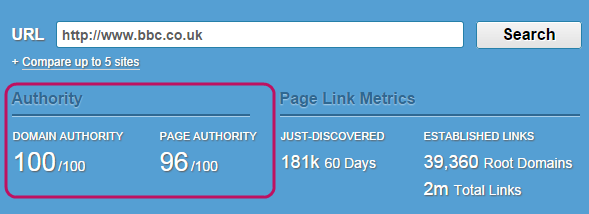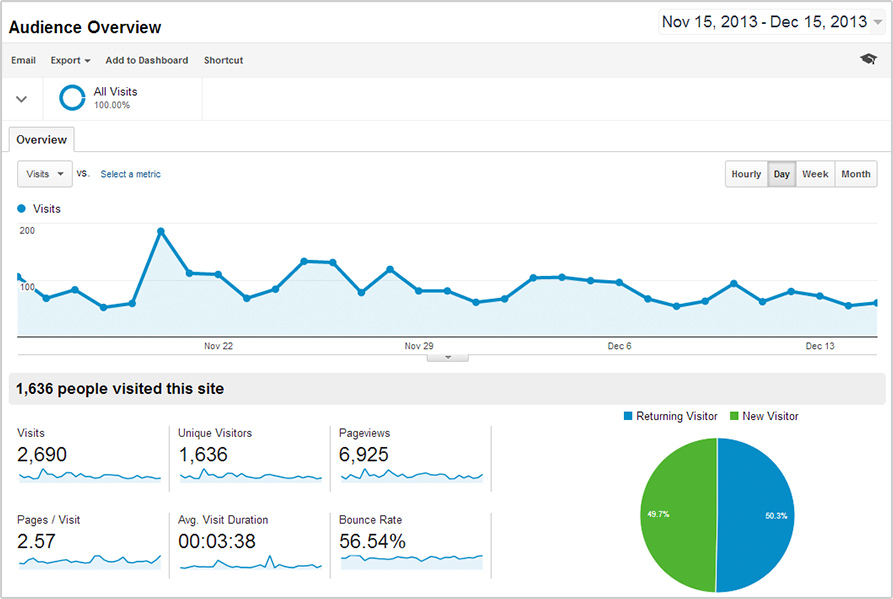The search engines take into account many different ranking factors when determining the visibility of your website in the search results, and the links that lead to your website from elsewhere on the Web are among the most important.
[Tweet “What makes a high-quality backlink? Find out now…”]However, while link building has long been an essential part of SEO, it remains one of the most misunderstood and commonly abused.
A good backlink should be seen as a trustworthy endorsement of your website rather than a way to manipulate the search engine results.
Let’s take a brief look at some common factors (or not, as the case may be) to consider when looking for links.
PageRank
Measuring the importance of web pages, PageRank is perhaps the most commonly misunderstood Google algorithm.
Contrary to what many inexperienced or out-of-date marketers might think, PageRank doesn’t really have much to do with link building.
In other words, PageRank is not something that you should take into account when looking for websites to get backlinks on.
Take a look at the wiki entry for more information on PageRank.
Domain Authority
Domain authority is a ranking metric used by major marketing firm Moz to determine the authority of a particular website based on its age, size and the amount of trust associated with it. It is a score given out of 100.
 Moz Open Site Explorer
Moz Open Site Explorer
Domain authority has nothing to do with content relevance or anchor text, but it is still a useful attribute to consider when looking for link building opportunities.
Content Relevancy
One of the most defining factors in what makes a good backlink is how the content relates to your own.
Links should exist for human readers and not for the search engines, so having a backlink on a website that is completely irrelevant, will not benefit your website much, and at worse may even be a red flag to Google as a sign of breaching their strict webmaster guidelines.
Domain Age
Google has stated that domain age is a small ranking factor, however, it is not particularly important with regards to link building.
The theory is that websites that have been around for longer tend to be more trusted, and therefore having links on them can be useful.
However, Matt Cutts (head of Google’s WebSpam Team) has since confirmed that domain age is not a factor worth worrying about.
Keyword Anchor Text
Long considered to be one of the most important factors in link building, anchor text optimisation has become a major target of Google’s algorithm updates.
Keyword anchor is the text used for a link. For example, LCN Blog is a pretty natural-looking way to link to our blog.
Keyword-optimised anchor text tends to lead to spam, where the focus is on artificially manipulating the search engine crawlers instead of providing useful content to human readers.
This was rife a few years ago, with webmasters deliberately creating links with keyword specific anchors.
In other words, anchor text should be varied and natural-sounding. Find more information on anchor text here.
Follow vs nofollow Links
If the no-follow attribute is assigned to a link, it tells the search engine crawlers not to pay any attention to it, and while this might sound counterproductive with regards to SEO, they can actually be quite beneficial.
Nofollow attribute was originally dreamt up as a way to cut down on link spamming, particularly on blog comments where people would post pointless comments in an attempt to gain an easy link to their site. Nofollow changed this, by rendering these links fairly useless, by telling search engines to disregard them.
If you ever want to link to a URL that you don’t want Google to follow from your site, or associate your site (such as a spammy looking or irrelevant website), use “nofollow” when you link.
Check out this blog post via Wordstream on follow vs no-follow.
Does the Link Send Traffic?
In spite of the original purpose of a link is to send traffic, some (perhaps less experienced) marketers might that link building is all about manipulating the search engines.
Rather than thinking of a backlink as a way to directly influence your standing in the search engines, you should think of it as a way to drive traffic directly to your website, which in turn will increase your visibility in Google.
 A great link will send traffic your way
A great link will send traffic your way
If more people are actually coming to your website by clicking on external links, it gives Google the impression that the links are actually useful to human readers.
Related: 6 great backlink sources
Editorial Links
As far as the search engines are concerned, the most valuable links are those that appear in the bodies of the texts themselves, provided that they are relevant and strategically placed. These are known as editorial links.
After all, the whole point of having such a link is that the author assumes it to be important and relevant enough that readers might be interested in clicking it to find out more about the subject being referred to.
Links that appear on every single page of a website, such as ones found in footers or blog sidebars, may not be deemed as relevant and useful to the end-user by Google.
Conclusion
To an extent, you could sum up link building with the fact that in most cases, the easier a link is to acquire, the less useful it will likely be.
There are some exceptions to this rule, however, including links from companies and people you have an existing relationship with – these types of, what I like to call “partner links”, should be no-brainers from the start!
Backlinks on spammy article directories or press release websites, while very easy to get, are completely valueless and may even harm your website unless you use the no-follow attribute.
Good backlink sources take time and effort to find and tend to come to you should your site be worthy, but they are immeasurably more useful to have than low-quality backlinks on irrelevant websites or generic directories with no specific focus.
Related: How to find all your backlinks
Your Say!
What do you think makes a great backlink? If you see a new link to your website, what is the first thing you check? Feel free to drop us a comment below.

7 thoughts on “Looking for the perfect link: What makes a good backlink?”
Comments are closed.